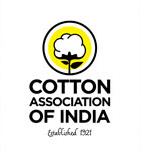28 Jan '25
(Fibre2Fashion News Desk (DS): Though 2024 saw the continued rollout of legislation mandating human rights and environmental due diligence in supply chains, including the EU Corporate Sustainability Due Diligence Directive adopted in May 2024, QIMA data suggests that a certain percentage of facilities still tends to resist improvement—a trend previously noted in earlier QIMA barometer reports.
Despite the progress being made, significant human rights risks remain in global supply chains, QIMA noted.
Insights
Though 2024 saw the continued rollout of legislation mandating human rights and environmental due diligence in supply chains, QIMA data suggests that a certain percentage of facilities still tends to resist improvement.
Critical violations related to work hours and wages were recorded in one-third of Bangladesh factories inspected last year—a rate notably higher compared to 2023 figures.
Bangladesh, in particular, made headlines as a human rights hotspot in 2024, with numerous factories shutting down due to worker protests. QIMA audit findings highlight the severity of the problem, with critical violations related to work hours and wages recorded in one-third of Bangladesh factories inspected last year—a rate notably higher compared to 2023 figures as well as the region’s 2024 average of 26 per cent.
But ethical risks in supply chains are not confined to Asia and other overseas supplier markets. Emphasising the growing importance of ethical compliance in the context of nearshoring, QIMA data shows a year-on-year doubling in demand for ethical audits at European factories from European Union (EU)-based buyers.
This trend underscores the increasing emphasis on ethical compliance in sourcing strategies, regardless of geographic location, a release from testing, inspection, certification, and compliance company QIMA said.
QIMA’s factory audit data suggests that increased legislative pressure is contributing to improved supply chain compliance and sustainability worldwide. Globally, the share of factories ranked ‘green’ for compliance by QIMA auditors increased to an all-time high of 58 per cent last year, indicating that over half of factories audited met relevant human rights and environmental requirements.
At the same time, the ratio of factories assigned a ‘red’ ranking, which indicates an urgent need for improvement, has remained unchanged from the previous year. (Source: Fibre2Fashion.com)
